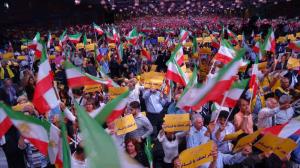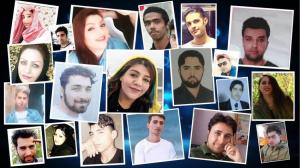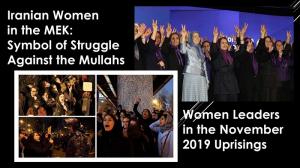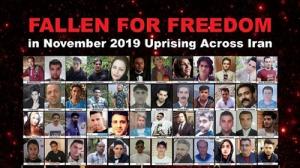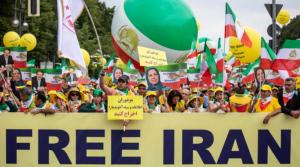(Video) Free Iran 2021: Topics at Iranian Expatriate Summit to Include Catastrophic Coronavirus Response
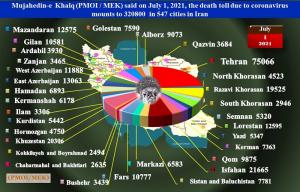
The National Council of Resistance of Iran (NCRI), and the People’s Mujahedin of Iran (PMOI / MEK Iran), reported that the coronavirus death toll in 547 cities surpasses 320,800.
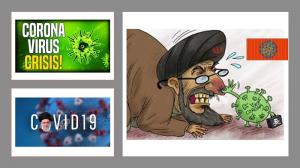
With the strategy of mass casualties, Khamenei intends to erect a barrier against the looming popular uprising, Mrs. Rajavi said. Otherwise, he could have limited the dimensions of the catastrophe by allocating part of the one trillion dollars stolen.

The predictable result of this situation is that, of the less than six percent of Iranians who have received a vaccine, the overwhelming majority are wealthy and well-connected individuals, including regime officials.
Soon after vaccines became available to international markets, Khamenei banned their import from the United States or the United Kingdom.
Speeches by Iranian activists will naturally present details of the political situation in Iran and the renewed growth of unrest in the wake of the June 18 appointment of notorious human rights violator Ebrahim Raisi as the country’s next president. But many of the same speakers can be expected to touch upon other issues that remain unresolved after months or years, including issues related to Iran’s Covid-19 outbreaks.
Even Iranian regime officials are now anticipating a “fifth wave” as part of the global coronavirus pandemic. Whereas many of the surrounding countries of the region have vaccinated significant portions of their populations, the Iranian regime has delivered shots to less than six percent of Iranians, and the National Council of Resistance of Iran (NCRI), has unequivocally described this situation as the product of both incompetence and malice on the part of regime authorities.
The coalition of democratic opposition has also emphasized that despite Tehran’s acknowledgment of the potential for future outbreaks, the regime has dramatically downplayed the severity of the crisis it helped create.
The latest reports from Iran’s Health Ministry suggest that the overall death toll from Covid-19 infections is around 84,000. But according to the NCRI, the true death toll is over 320,000, nearly four times higher than the official estimate. Over the course of the pandemic, official statistics and independent reporting have seen even wider discrepancies, with long stretches during which the Health Ministry was apparently reporting around one-sixth as many fatalities as had actually occurred. But in terms of percentages, the largest discrepancies came at the earliest stages of the pandemic, when people were only just beginning to die but the regime refused to acknowledge that anyone in the country had even become sick.
Iranian regime’s outgoing President Hassan Rouhani was quick to deny that this had been the situation once the severity of the crisis had become obvious. In a speech, he declared that the regime “did not delay one day” in informing the people of community spread, making that announcement just ahead of the country’s February 2020 parliamentary election. Almost immediately, though, this claim was disproven by the People’s Mojahedin Organization of Iran (PMOI/MEK), which obtained documents from the National Emergency Organization showing that the first suspected cases of coronavirus infection had been recorded as early as December 2019.
The regime’s denial of these early cases set the stage for a crisis that would spiral out of control, and it clearly demonstrated the self-serving nature of the regime itself. Had public concern been stoked or lockdowns put into place at that early stage, authorities might have lost opportunities to facilitate large-scale participation in public celebrations and parades on the occasion of the regime’s 40th anniversary, as well as in the election which Tehran envisioned as a means of demonstrating vital political legitimacy in the wake of two massive nationwide uprisings.
In fact, it seems likely that the only reason Rouhani and other officials even acknowledged the pandemic when they did was because it had become clear by then that a MEK-led boycott of the parliamentary election was going to prove successful, depressing election turnout to the lowest levels in the history of the Iranian regime. Sudden warnings about the novel coronavirus allowed the regime to blame the low turnout on public vigilance – an ironic strategy in light of the fact that many of the same authorities would later blame the people’s supposed lack of vigilance for the third and fourth waves of infection.
In reality, those waves had more to do with the regime’s refusal to impose serious restrictions on movement and social activity in the middle of a year that the regime’s Supreme Leader Ali Khamenei declared should be dedicated to boosting economic production. That twisted priority also guaranteed that authorities would not release financial resources to support the general population during the crisis, even though Khamenei and the Islamic Revolutionary Guard Corps each control hundreds of billions of dollars through so-called religious foundations, front-companies, and other sources.
What’s more, the IRGC and other government-linked institutions have been keen to capitalize on potential solutions to the crisis in order to make even more money. Soon after vaccines became available to international markets, Khamenei banned their import from the United States or the United Kingdom, effectively canceling pre-arranged philanthropic donations and leaving the Iranian people to rely on less effective and less thoroughly tested vaccines from Iran-friendly countries like Russia, as well domestic vaccines that had not gone into production at the time. Their distribution was entrusted to supposedly private entities, most of which were IRGC front companies, and although Tehran had assured the people that vaccinations would be free, doses soon began appearing on the black market with extortionate price tags.
The predictable result of this situation is that, of the less than six percent of Iranians who have received a vaccine, the overwhelming majority are wealthy and well-connected individuals, including regime officials. Such selective protection clearly justifies the Iranian people’s pre-existing outrage over the regime’s self-serving behaviors – outrage that had been expressed on a vast scale in November 2019.
That uprising was the second of its kind, having been preceded by nationwide protests in January 2018 and countless loosely connected local demonstrations throughout the subsequent year. All of this unrest featured slogans such as “death to the dictator,” which evoked clear public demand for regime change and scared the regime leader into acknowledging that the MEK had played a leading role in organizing the nationwide activism.
Since then, Khamenei and others have continually warned one another about the prospect of more MEK-led unrest. These warnings prompted an extraordinary crackdown on the second uprising, which killed approximately 1,500 people and sent more than 12,000 to jail where they faced systematic torture over a period of months. During that period, Iranian jails and prisons became hotbeds of coronavirus infection, and the resulting impact on political prisoners helped push the NCRI toward the conclusion that regime authorities were deliberately allowing the pandemic to go virtually unchecked in Iran because it reduced the risk of large-scale demonstrations.
Indeed, such unrest remained largely absent throughout 2020, but began to return earlier this year with incidents that Mrs. Maryam Rajavi highlighted as evidence that “the flame of the uprisings has risen from the ashes of the coronavirus.” That message is sure to reiterate at the Free Iran World Summit, with reference to currently ongoing protests and labor strikes, and the June 18 boycott of the election that handed the presidency to Ebrahim Raisi, the man who, as judiciary chief, spearheaded the crackdown on the November 2019 uprising.
These details should demonstrate to Western powers that there is practical value in supporting the Iranian Resistance. The underlying context, meanwhile, will reinforce the moral value of working against a tyrannical regime that is willing to focus on enriching itself while a deadly virus spreads unimpeded among the civilian population.
Shahin Gobadi
NCRI
+33 6 50 11 98 48
email us here
Visit us on social media:
Facebook
Twitter
Call for Supporting Iran’s People and Opposition Against the Religious Fascism
Legal Disclaimer:
EIN Presswire provides this news content "as is" without warranty of any kind. We do not accept any responsibility or liability for the accuracy, content, images, videos, licenses, completeness, legality, or reliability of the information contained in this article. If you have any complaints or copyright issues related to this article, kindly contact the author above.

